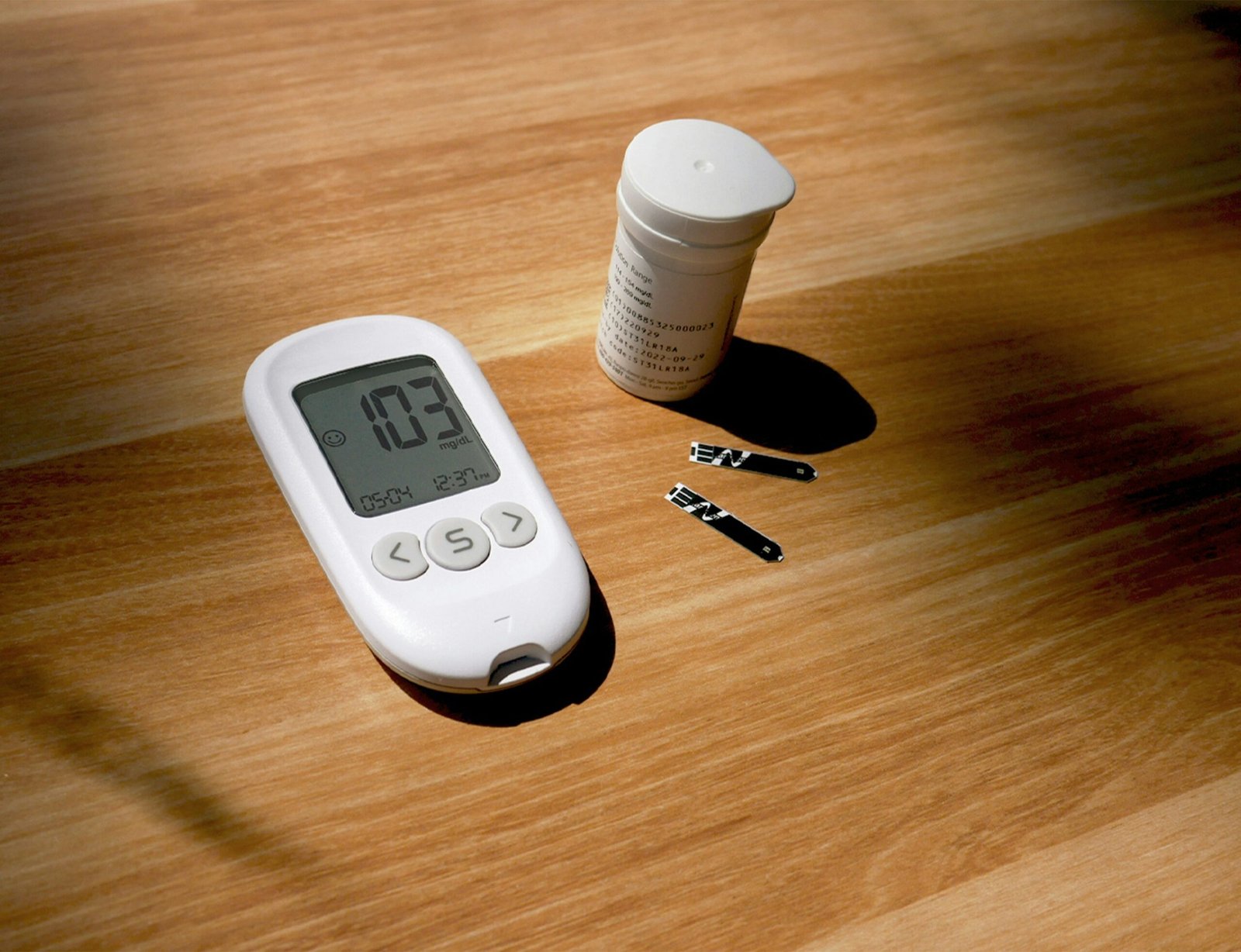
Understanding Hypoglycemia
Hypoglycemia is a condition that occurs when the blood sugar levels drop below normal. It is most commonly associated with diabetes, but it can also affect individuals without diabetes. Hypoglycemia can be a serious and potentially life-threatening condition if not managed properly.
For individuals with diabetes, hypoglycemia can occur as a result of taking too much insulin or other diabetes medications, skipping meals, or engaging in excessive physical activity without adjusting medication or food intake. It is important for every diabetic to be aware of the signs and symptoms of hypoglycemia and know how to manage it effectively.
When blood sugar levels drop too low, the body’s cells do not receive the necessary fuel for energy production. This can lead to a variety of symptoms, including dizziness, confusion, weakness, sweating, trembling, and even loss of consciousness. If left untreated, severe hypoglycemia can result in seizures, coma, and even death.
Managing hypoglycemia requires a multi-faceted approach. The first step is prevention. Diabetics should strive to maintain stable blood sugar levels by regularly monitoring their glucose levels, following a balanced diet, and taking their medications as prescribed. It is also important to engage in regular physical activity, but to be mindful of the potential impact on blood sugar levels and adjust medication or food intake accordingly.
If hypoglycemia does occur, immediate action is necessary to raise blood sugar levels. This can be done by consuming fast-acting carbohydrates, such as fruit juice, glucose tablets, or candy. It is important to follow up with a snack or meal containing protein and complex carbohydrates to stabilize blood sugar levels and prevent another drop. In severe cases where the individual is unconscious or unable to swallow, a glucagon injection may be necessary to raise blood sugar levels quickly.
Education and awareness are key in managing hypoglycemia effectively. Diabetics should work closely with their healthcare team to develop a personalized plan for managing low blood sugar. This may include regular check-ins, adjustments to medication or insulin dosages, and ongoing education about the signs and symptoms of hypoglycemia.
In conclusion, hypoglycemia is a serious condition that can have potentially life-threatening consequences if not managed properly. It is important for individuals with diabetes to be proactive in preventing hypoglycemia and to know how to respond if it does occur. By maintaining stable blood sugar levels, following a balanced diet, and working closely with their healthcare team, diabetics can minimize the risk of hypoglycemia and lead healthy, fulfilling lives.
If left untreated, hypoglycemia can lead to more severe symptoms, such as seizures, unconsciousness, and even coma. It is crucial to recognize the early signs of hypoglycemia and take appropriate action to prevent it from progressing to a more serious state.
In addition to the common symptoms mentioned above, some individuals may experience other signs of hypoglycemia. These can include a tingling sensation or numbness in the lips or tongue, difficulty speaking or slurred speech, clumsiness or unsteady movements, and anxiety or feelings of panic. It is important to note that not everyone will experience all of these symptoms, and the severity of symptoms can also vary.
One of the most important aspects of managing hypoglycemia is understanding the underlying cause. Hypoglycemia can occur in individuals with diabetes who take certain medications, such as insulin or certain oral hypoglycemic agents. It can also be caused by other factors, such as excessive alcohol consumption, certain medical conditions like liver or kidney disease, hormonal imbalances, or even prolonged fasting or skipping meals.
If you suspect that you or someone you know is experiencing hypoglycemia, it is important to check blood glucose levels using a glucometer if available. A blood glucose level below 70 mg/dL is generally considered low and may indicate hypoglycemia. However, it is essential to consult with a healthcare professional for proper diagnosis and management.
When hypoglycemia is detected, the first line of treatment is to consume a source of fast-acting carbohydrates to raise blood sugar levels quickly. This can include consuming glucose tablets or gel, drinking fruit juice or a regular soda, or eating a snack that contains sugar, such as a piece of candy or a small serving of raisins. It is important to follow up with a source of protein and complex carbohydrates to help stabilize blood sugar levels and prevent another drop in glucose.
In some cases, if hypoglycemia is severe or recurrent, adjustments to medication or lifestyle may be necessary. This can involve working closely with a healthcare team to modify diabetes medications, develop a personalized meal plan, and establish a routine for regular blood sugar monitoring.
Overall, recognizing the signs and symptoms of hypoglycemia is crucial for prompt intervention and prevention of complications. By understanding the underlying causes and implementing appropriate management strategies, individuals with hypoglycemia can effectively maintain their blood sugar levels and prevent the occurrence of more severe symptoms.
Managing Hypoglycemia
When experiencing hypoglycemia, it is important to take immediate action to raise blood sugar levels. Here are some steps to manage hypoglycemia:
- Consume 15 to 20 grams of fast-acting carbohydrates, such as glucose tablets, fruit juice, or regular soda. Avoid foods with high fat content, as they can slow down the absorption of glucose.
- Wait for about 15 minutes and recheck blood sugar levels. If they are still below the target range, repeat step 1.
- Once blood sugar levels have stabilized, consume a snack or meal that contains both carbohydrates and protein to prevent another drop in blood sugar.
- Monitor blood sugar levels closely for the next few hours to ensure they remain within the target range.
If hypoglycemia is severe and the individual is unable to consume food or drink, it may be necessary to administer an injection of glucagon. Glucagon is a hormone that raises blood sugar levels and can be given by a healthcare professional or a trained individual.
Managing hypoglycemia is crucial for individuals with diabetes or other conditions that can cause low blood sugar levels. Hypoglycemia occurs when the body’s blood sugar, or glucose, levels drop below normal. This can happen due to various reasons, such as skipping meals, taking too much insulin or certain medications, exercising excessively without adjusting food intake, or drinking alcohol without eating enough. When blood sugar levels are too low, it can lead to symptoms like dizziness, shakiness, confusion, sweating, and even loss of consciousness if left untreated.
The first step in managing hypoglycemia is to recognize the symptoms and take immediate action. Consuming fast-acting carbohydrates is crucial to quickly raise blood sugar levels. Glucose tablets, fruit juice, or regular soda are good options as they are easily absorbed by the body. It is important to avoid foods with high fat content, as they can slow down the absorption of glucose and delay the desired effect.
After consuming the fast-acting carbohydrates, it is essential to wait for about 15 minutes and recheck blood sugar levels. If they are still below the target range, it is necessary to repeat the first step and consume another 15 to 20 grams of fast-acting carbohydrates. This process should be continued until blood sugar levels stabilize and reach the desired range.
Once blood sugar levels have stabilized, it is important to consume a snack or meal that contains both carbohydrates and protein. This combination helps to prevent another drop in blood sugar by providing a steady release of glucose into the bloodstream. Examples of such snacks or meals include a piece of fruit with a handful of nuts, a yogurt with berries, or a turkey sandwich on whole-grain bread.
Monitoring blood sugar levels closely for the next few hours is crucial to ensure they remain within the target range. This can be done using a blood glucose meter, which provides a quick and accurate reading of blood sugar levels. If blood sugar levels continue to be low or fluctuate, it may be necessary to consult a healthcare professional for further guidance and adjustments to the treatment plan.
In severe cases of hypoglycemia where the individual is unable to consume food or drink, the administration of glucagon may be necessary. Glucagon is a hormone that raises blood sugar levels by stimulating the liver to release stored glucose. It can be administered through an injection and should only be done by a healthcare professional or a trained individual who knows how to use it properly.
Overall, managing hypoglycemia requires prompt action, careful monitoring, and proper treatment. It is important for individuals with diabetes or other conditions that can cause low blood sugar levels to be prepared and educated on how to manage hypoglycemia effectively. By following the steps outlined above and seeking professional guidance when needed, individuals can maintain stable blood sugar levels and prevent complications associated with hypoglycemia.
Preventing Hypoglycemia
While managing hypoglycemia is important, preventing it from occurring in the first place is the ultimate goal. Here are some strategies to prevent hypoglycemia:
- Follow a consistent meal plan and eat regular meals and snacks.
- Monitor blood sugar levels regularly and adjust insulin or medication doses as needed.
- Be mindful of physical activity and adjust food intake and medication accordingly.
- Carry a source of fast-acting carbohydrates, such as glucose tablets, with you at all times.
- Communicate with your healthcare team and inform them of any changes in your medication, diet, or lifestyle.
- Engage in regular exercise to improve insulin sensitivity and overall blood sugar control.
- Ensure you are getting enough sleep as sleep deprivation can affect blood sugar levels.
- Manage stress levels as stress can cause fluctuations in blood sugar levels.
- Avoid excessive alcohol consumption as it can lead to hypoglycemia.
- Consider using a continuous glucose monitoring system to closely track blood sugar levels throughout the day.
It is important to work closely with your healthcare team to develop an individualized plan for managing and preventing hypoglycemia. They can provide guidance on medication adjustments, meal planning, and lifestyle modifications to help keep blood sugar levels stable and reduce the risk of hypoglycemia. By implementing these strategies and maintaining open communication with your healthcare team, you can take proactive steps to prevent hypoglycemia and maintain optimal blood sugar control.


